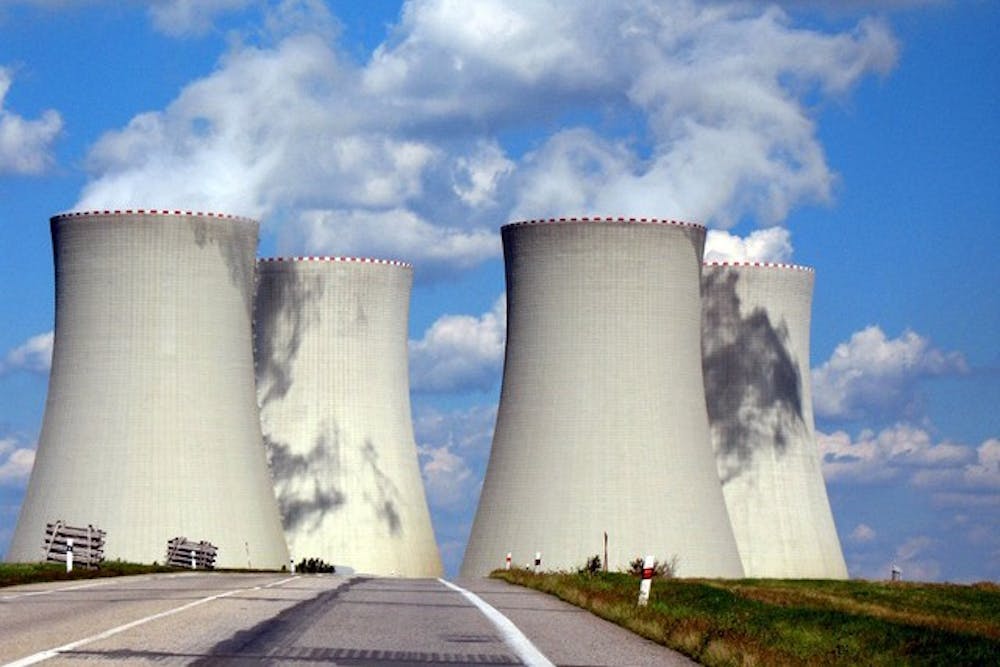The pope is coming to Philadelphia this weekend. Some may opt to hide from the crowds inside the corner of their dorm room. Some may find their way downtown amidst the chaos for an unforgettable Snapchat story. And for some, the arrival of one of today’s most prominent public figures in Philadelphia serves as an inspiration.
Pope Francis has proven to be a revolutionary leader in the Catholic church on not only social justice issues, but also on environmental issues. In his encyclical (Papal statement of Catholic doctrine) on ecology, he states that “the urgent challenge to protect our common home includes a concern to bring the whole human family together to seek a sustainable and integral development, for we know that things can change.”
This encyclical takes a tremendous step forward in facing one of the greatest and fastest growing problems of our age — the warming of our climate. He states, “Climate change is a global problem with grave implications: environmental, social, economic, political and for the distribution of goods. It represents one of the principal challenges facing humanity in our day.” The significance of his words is that he has now included concern for climate change as one of the Christian faith. His words have molded the issue of climate change into an issue of morality and ethics, rather than pure science. Scientists have found a surprising ally in the issue of climate change in the face of climate skeptics and American lawmakers.
We should take a step back and look at the many reasons that Pope Francis decided to make such an urgent call to arms in terms of climate change. Global warming of even a few degrees can have drastic effects around the world. For every 2 degrees Fahrenheit of global temperature rise, we can expect to witness 5-15 percent reduction in global crop output, 3-10 percent increase in precipitation during extreme weather events and a 200-400 percent increase in destruction area by wildfire. Scientists predict that at the current rate of warming, the global temperature will rise 2-12 degrees by the year 2100. Additionally, melting Arctic sea ice due to increased temperatures will lead to significant sea level rise, which results in much stronger storm surges, extreme flooding and even the complete submersion of low-lying islands. The effects of climate change are devastating, not only to the polar bears, but to every single human being on this planet.
As a man with immense power and following, as well as stoically unaffiliated with politics, Pope Francis has a unique position to bring this set of issues into the eyes of the world. In his encyclical, he also warns that we create an impact on the earth and that makes it our duty to mitigate the effects of climate change.
The challenge of climate change is not only the threat to our own futures, but it is also an injustice being committed on the most vulnerable among us. Carbon emissions and fossil fuel consumption by major developed countries impact those in less developed countries the most. The pope warns that for the poorest in developing countries, their “means of subsistence are largely dependent on natural reserves and ecosystemic services such as agriculture, fishing and forestry”, which makes them the the most vulnerable to the impact of a changing ecosystem. Therefore, the issue of poverty and poor quality of life in the developing world go hand in hand with the issue of climate change.
With the pope so close to home for us, it is important to remember his message. His appearance in Philadelphia this weekend is more than an exciting disruption to our everyday lives. It is an opportunity to feel inspired, come together, reflect on his messages and teachings and take part in the change he is asking for.
Climate change is an issue that cannot be pushed aside. While he is here, feel the positive energy from the crowd of people all coming together to support his message. After he leaves, one can only hope this positive energy will transform into the change we so badly need.
RITA WEGNER is a College sophomore studying environmental studies and political science. ZACH RISSMAN is a College freshman studying BBB. EMILY CIESLAK is a College freshman studying environmental studies and communication. ANGELA ZHANG is a Wharton junior studying finance, OPIM and environmental policy and management.



